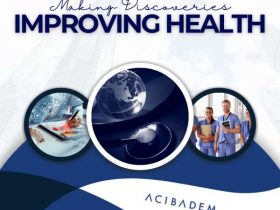
You’ve gone through more than a decade of school, deep-diving into everything you need to know to save a human (or animal) life. But what med school doesn’t dig into enough is the business side of your job.
Even if you work for someone else, there are aspects of your career as a physician that you will want to learn how to control. From managing your time and juggling all your hats to understanding your insurance policies, these crucial aspects behind the scenes can make your patient contact time run smoother.
Luckily, there are some expert tips available to help you as you learn the ropes or expand your knowledge. Here are three resources every doctor should know about to make their jobs a little less challenging.
1. How to Juggle Your Hats
You likely learned the importance of being organized while you were in med school and interning. This critical soft skill continues to be essential now that you’re on your own, but even more so.
As a physician, your job includes more than patient care. You’re responsible for seeing patients in a timely manner, completing documentation for each person you see so the insurance can be billed and medical records completed, and ensuring you stay up-to-date on the latest changes in your profession.
Many doctors have a difficult time juggling all of these responsibilities. They can prioritize patient care, which is, of course, the most important part. But after that, things like completing documentation and remembering to call in prescriptions or send referrals get put on the back of the pile. To the patient and your office staff, these tasks are necessary to further the care you’ve recommended.
To fix this, you’ll need to develop a system that gives you time to finish one patient before you start another or, at the very least, provides you with breathing room to handle all of the clerical aspects that day. The American Medical Association provides a helpful resource that teaches you how to reduce 75% of your clinical documentation and avoid burnout.
Completing your tasks while the patient interaction is fresh in your mind prevents dangerous mistakes from happening. Yes, it’s beneficial to see as many patients as possible, but only if you’re able to do so while continuing to adhere to a high standard of care.
2. Physician Insurance
Much of your day may seem like it’s spent lecturing patients on the importance of early detection and healthy living to prevent chronic diseases and illnesses. But how much of what you’re saying do you practice yourself?
As a doctor, you know how the body works and why things like self-care, regular check-ups, sleep, and exercise are critical. With your busy schedule, though, these may get put on the back burner.
Although you’re a medical expert, it’s possible for you, too, to find yourself in need of healthcare. When that happens, your insurance policies should ensure you don’t need to pay out of pocket for more than your deductible and co-insurance. And if you must be out of work while you’re recovering, your disability insurance policy should be adequate enough to cover most of your expenses.
Resources like Physicians Thrive can teach you how to protect your assets, what kind of insurance you should have as a physician, and how to find legitimate coverage that won’t break the bank.
3. Continuing Education
Part of your licensure requires regular continuing education credits before your renewal period is up. Some doctors see this as a hassle that they skim through with as little work as possible. However, healthcare never stops evolving, and if you see continuing to expand your knowledge as a positive thing, you can integrate your pursuit of information with accumulating credits.
Now that you’ve graduated med school, you don’t have to stop there. What do you see yourself doing in five years? Ten? Longer?
Continuing Medical Education credits, like those you’ll find in this resource, are a non-negotiable aspect of your career, but they can be combined with your goals. Use the time you must spend in these courses wisely, and the information you gain can expedite your ability to hit your professional targets.
Along the way, gaining these certifications may also boost your income, giving you the ability to provide more services. This makes you an increasingly valuable asset, whether you work for yourself or someone else.
Conclusion
The days of medical school are in the past, but as a doctor, you’ll never stop learning and growing in your profession. Bookmark these three resources, and you’ll find your intensive career a little less challenging.












